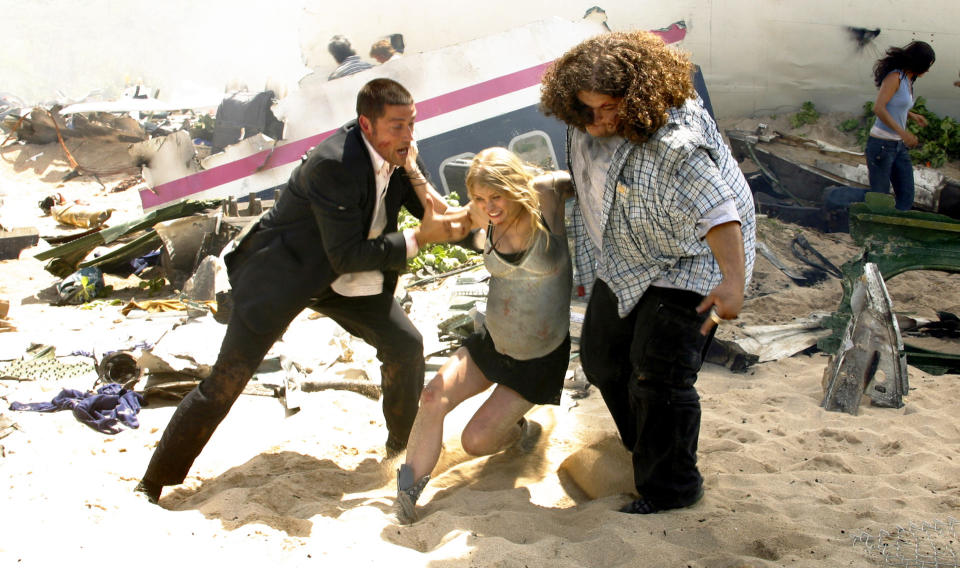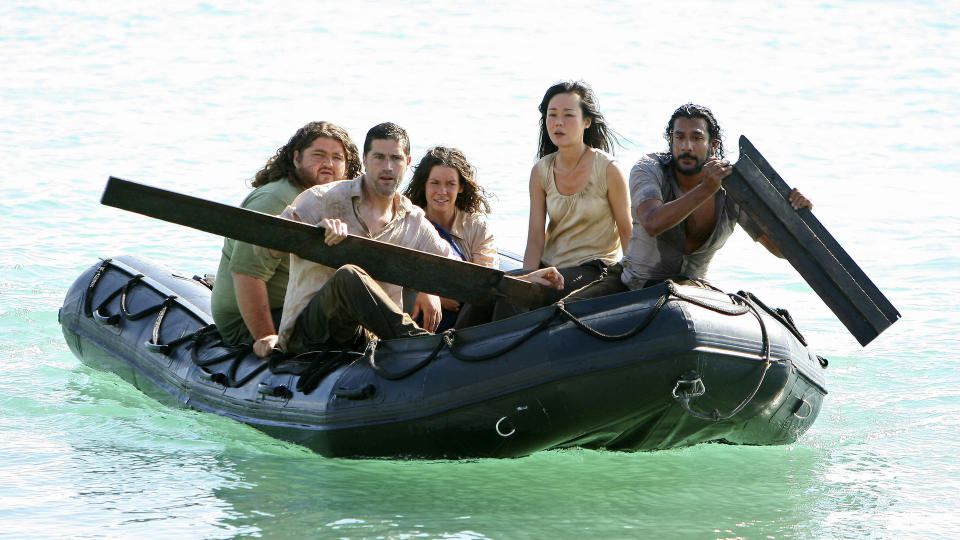After 20 Years, the ‘Lost’ Score Still Rules the Island

Folks who write about television are often guilty — and this writer is certainly one of them — of talking about TV music as a character in its own right. It’s usually because the music is helping create key dramatic moments or providing a sense of the show’s tone and environment in a way that goes beyond imagery. But it’s another thing when TV writers themselves recognize the music of their series as a character and actually put into the script, “Insert music here to make this happen.”
According to composer Michael Giacchino, that is exactly what happened on “Lost,” which somehow hit the 20th anniversary of its pilot episode on September 22 — although he didn’t realize it until he was shown scripts much later. A constant for Giacchino, on “Lost” and off, has been to have his music truly be a reaction to what he sees the first time he watches. “What I don’t like to do is read a script first,” Giacchino told IndieWire. “I prefer to see the story as the director interprets it.”
More from IndieWire
Giacchino worked with director J.J. Abrams prior to “Lost,” and the two determined that the series’ greater good would require bucking how most television music was made at the time. (Particularly on network TV, scoring was done with synths and samples.) And there was a reason why, too. In order to work with a live orchestra consisting of piano, harp, strings, and percussion gathered from all over the world, and, of course, the iconic trombones, Giacchino had to write and record music fast. Very fast.
“We never really spotted any of the episodes for the entire run of the show. There just wasn’t time to discuss music episode by episode, as the showrunners were cranking out scripts and shooting episodes, so I would receive the episode and have (in many cases) three to five days to write and turn it around — meaning recording as well,” Giacchino said.
Spotting is when a composer and showrunners and/or a director go through the edit of a given episode and figure out which places should have musical score and what might be needed from the music in each spot. But there simply aren’t enough hours in the day to do it for 23 episodes of television per season. “Lost” showrunners Damon Lindelof and Carlton Cuse, instead, had to trust Giacchino would come up with the cues they needed — even when those cues and character themes adapted and changed over time.

“I was always having fun with Locke’s [Terry O’Quinn] theme, which evolved and changed and grew in many, many ways over the course of the show. He was a really interesting character because his role in the show was constantly shifting, as were his allegiances and beliefs. As a result, I could never treat him the same way — and that kept me on my toes,” Giacchino said.
Giacchino’s responses to the characters and their changing allegiances put him into the eventual position of the audience. The music is one of us, but Giacchino credits much of its success to creating it in concert with the rest of the “Lost” post team. “I was given a lot of leeway, and looking back, it was one of the most rewarding jobs I ever had,” Giacchino said. “It taught me to trust my choices, to understand you can’t behave as if you have an endless amount of time to work because it really hurts the other members of the post-production team if you aren’t on the ball. There’s still a lot of work to do after I deliver my music.”
Still, it was clear even before the end of the first season that Giacchino’s music was doing yeoman’s work on the show. The score can be sharp, short, and either dripping with dread o or providing the edge of sudden reveals of the island’s mysteries. But when the strings and piano have enough runway, the score unlocks a soulfulness and a kind of heroic love between the characters. It’s that sound, as much as anything else, that connects us to the world of the show and makes it meaningful.

“When we recorded the raft scene, which was the finale of the first season, it was incredibly moving. I remember that was the first session that both Carlton and Damon were able to attend. After we did the first take of ‘Parting Words,’ the orchestra members all tapped their bows on the instruments, and everyone in the booth had tears in their eyes,” Giacchino said. “You just never know what’s going to work. You have to rely on your instincts and hope for the best. Even today, I can still feel what I felt on the stage that day when we play it in concert live to picture.”
No one in that booth could have seen the shape of things to come, but the “Lost” score’s afterlife, both as a live concert experience and in album form, speaks to its staying power. “The most interesting and satisfying thing is how the show, as a whole, still holds the emotion and visceral experience that audiences originally felt about these characters, their story arcs, and the personal meanings of what the show has meant to those who loved it,” Giacchino said. “The universal themes in ‘Lost,’ in particular, the idea of redemption, resonates still.”
Soundtracks for Seasons 1-6 of “Lost“ and Michael Giacchino’s “Exotic Themes for the Silver Screen” are available on most music streaming platforms.
Best of IndieWire
Sign up for Indiewire's Newsletter. For the latest news, follow us on Facebook, Twitter, and Instagram.
Solve the daily Crossword

